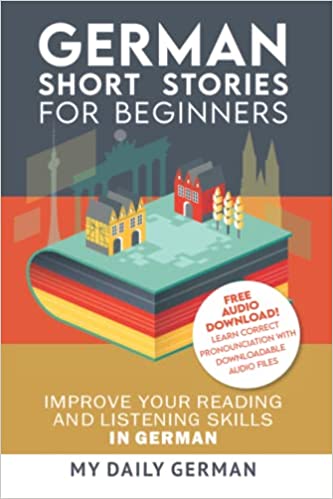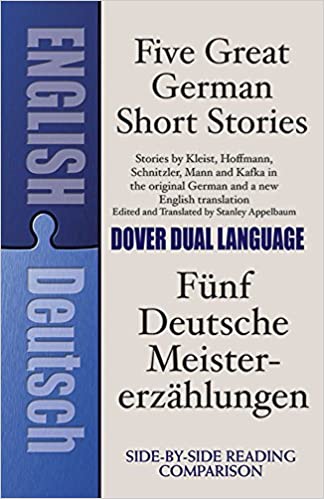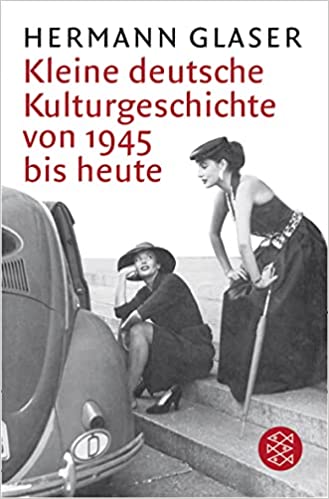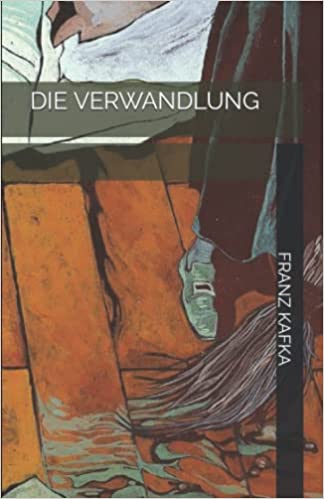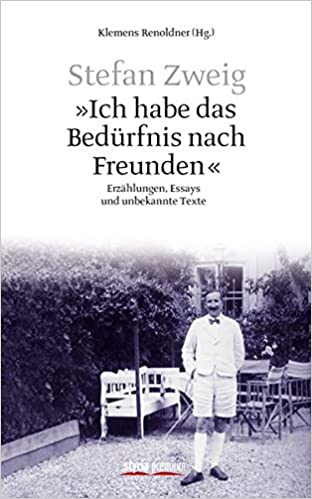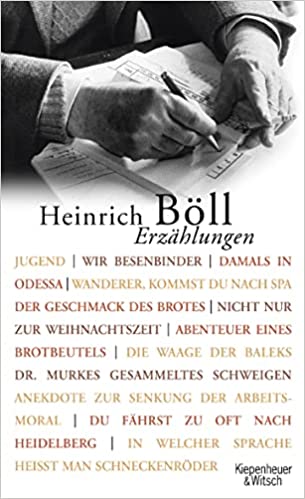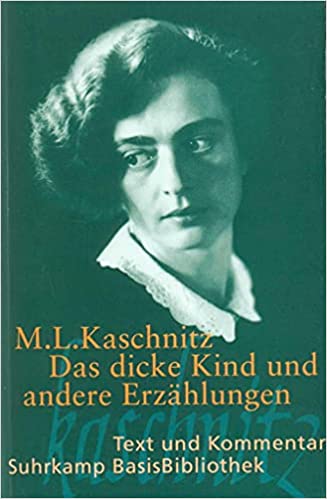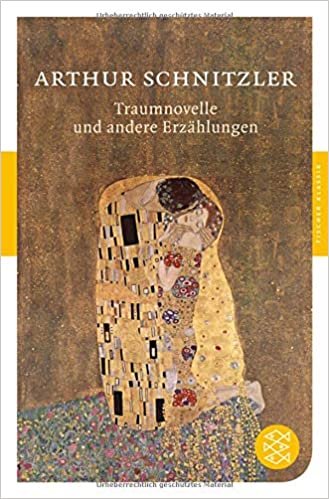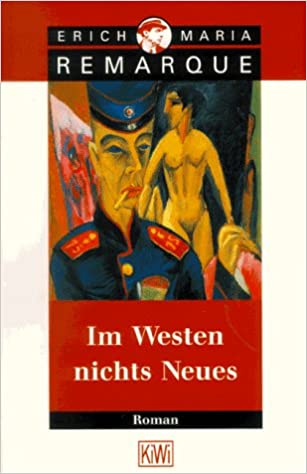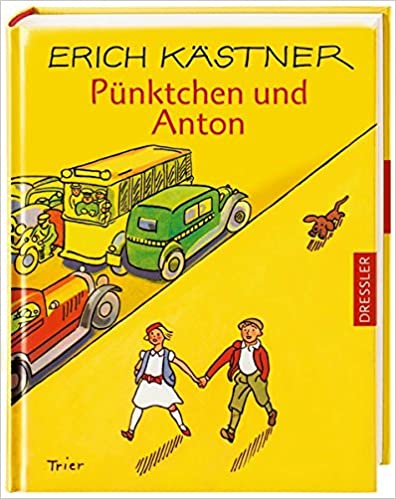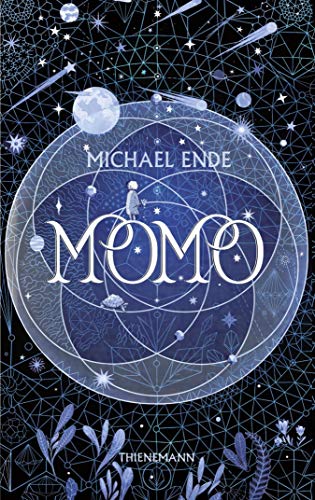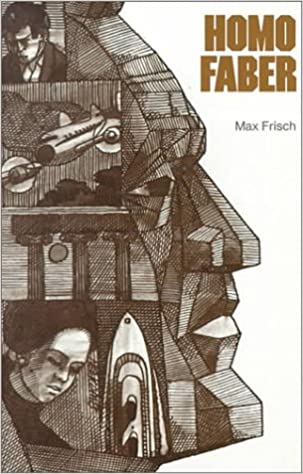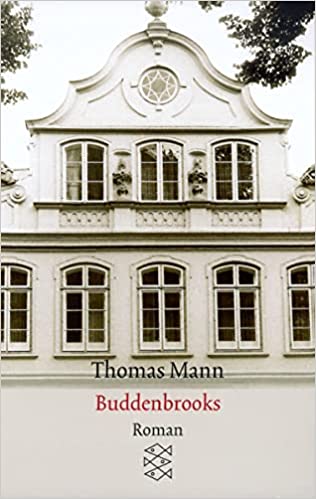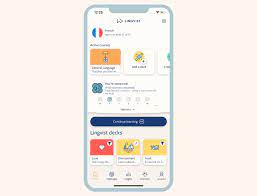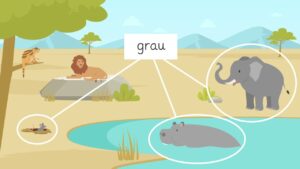Amazing German Books for Beginners That Really Surprised Us
Every foreign language student reaches a point when they need to take a leap from grammar books to authentic reading materials. If you have been studying German for a while, you might want to check German literature: German novels, German fairy tales, and German short stories.
They will introduce you to the culture, boost your comprehension skills, and contribute to your German fluency. If you’re afraid to take this leap, here’s a disclaimer: you won’t join advanced learners unless you watch German movies and YouTube videos, and read German books and magazines.
At a certain point, grammar and vocabulary alone won’t do the trick anymore. You need to explore the real world of the German language.
Join our German native instructor Birgit and her fun American student Alex as they discuss reading books in their original German versions.
Is There Anything German to Read as an Absolute Beginner?
-Hello, Alex! Welcome to today’s class on something you’ll love.
- Are we finally discussing German supermodels?
- Alex, it’s 10 a.m.
- Love doesn't have a schedule. I haven't even had breakfast yet, but my heart is wide open.
- Even better. Ein voller Magen studiert nicht gern.
- What?
- "It's difficult to concentrate on mental tasks after a heavy meal." That’s a pearl of classic Latin wisdom - venter non studet libenter.
- Birgit, all due respect, my hands are kinda full with German, I don't need to dabble into Latin as well.
- Your loss. Today's lesson is about books, by the way.
- Mein Gott...
- I assumed you were a bookworm, Bücherwurm.
- I’m a foodworm, an Essenwurm.
- I keep forgetting how fun you are. But we need to focus on books. I'll start with some that are ideal for a beginner learning German, but lacking the confidence for Remarque:
Conversational German Dialogues. It is the best dialogue book with loads of everyday texts in German and their English translations. The topics range from shopping to vehicle inspection and are written in contemporary German. Once you have covered them and noted some essential words, you are pretty much equipped to get around in Germany.
German: Short Stories for Beginners. A perfect collection of useful short stories, this German book also covers everyday situations and has an English translation of every story. It also features lists of new words, summaries, and audio records. You will improve reading comprehension, German vocabulary, and listening at the same time.
Five Great German Short Stories: A Dual-Language Book. A book of slightly abridged captivating stories in German with a parallel text in English, this one is the first classic English speakers should get. With Hoffmann’s "Sandman", Kafka’s "The Trial", and more, it's a real gem for all beginners and intermediate learners of German.
German Stories/Deutsche Erzahlungen: A Bilingual En Face Anthology. This one is an anthology of the most popular German short stories. The book also features an overview of the authors covering the 18th – 20th centuries and serves as another great find for those learning German.
Kleine deutsche Kulturgeschichte von 1945 bis heute. Not designed for German language learners specifically, this book is still an easy read. It has simple sentence structures and useful vocabulary that is suitable for the intermediate level. This culture guide nicely introduces German learners to German history and its uniqueness.
- Are you still alive?
- Just a minute. I need to inform my friends I’m off till winter, to cover all your great German books for beginners.
- You don’t need to devour them all at once.
- As if you aren't following with another list.
- You know me so well.
- Tell me about it...
- If you get tired from reading short stories, switch to watching them on Flying Languages. This episode of "Mein Weg nach Deutschland" focuses on a newcomer's life in Germany. It's a short story on screen if you like: "Entschuldigung, bin ich hier richtig?" - "Das kommt darauf an. Ich weiß ja nicht, wo Sie hin wollen".
Example #1 - Mein Weg

Entschuldigung, bin ich hier richtig? 01:10 - 01:16
- Before you get angry, here's the last language book – essential grammar rules. Practice Makes Perfect: Complete German Grammar. Once you’ve got it, you won’t need another grammar textbook.
- The entire German grammar in one book! That's a wow!
- And on Flying Languages!
FAQ: Can I learn German by reading books?
The short answer is yes. One of the most effective ways to learn a language is by reading. A book in its original version helps you gain a deeper understanding of the target culture and its people as well as to learn vocabulary, polish grammar, and improve sentence structure. Try one of the classics listed in our article. They are great for beginners and intermediate-level learners.
I'd Love to Read Zweig in the Original. Should I?
- Are you over the shock of the previous list?
- I'm numb to it by now.
- That's the spirit! Check our lesson on German short stories for German fairy tales (Märchen) by the Brothers Grimm and classic short stories (klassische Erzählungen) by prominent writers. I’d like to expand these with some absolute "musts". They'll make you a connoisseur of the German language and culture.
- I’m not done with the previous lists yet.
- I’m sure you’re done with some German series, though.
- Yeah. Have you seen the latest episodes of Charité, where Anni…
- We’ll schedule another lesson to cover her story.
- Relaxing, with a cup o’joe?
- Sure.
- And a bagel?
- A donut, even.
- This thought gives me the energy to face another reading list.
- Ok, here are the names of some German authors and their best stories:
Top German Short Story Authors
Franz Kafka (Die Verwandlung, 1912; Forschungen eines Hundes, 1922). One of the authors everyone knows, Kafka is worth reading for his great style, fantastic plots, and some absurdity amidst realism, to name just a few things. While he wasn't actually German, he wrote in German. As a learner, you will benefit from his clear sentence structure and structure.
Stefan Zweig (Angst, 1910; Schachnovelle, 1941). One of the most widely translated Austrian writers, he is the short story author to start with if you aren't a native speaker. His easy-yet-enjoyable style turns the language learning process into entertainment rather than labor. You'll finish any of his books with loads of useful phrases.
Heinrich Böll (Eine Anekdote zur Senkung der Arbeitsmoral, 1963; Wie in schlechten Romanen, 1974). While this Noble laureate is not the easiest to read in a foreign language, it is an absolute must in terms of content and new vocabulary. His stories are truly German, dense, and thought-provoking. Grab a dictionary and get ready to enjoy modern German literature. His writing will give you some posh vocabulary you'll need later on your language learning journey.
Marie Luise Kaschnitz (Das dicke Kind, 1952; Ferngespräche (1966). One of the most well-known female short story writers, she received the Büchner Prize and Roswitha Prize. Kaschnitz's writing focuses on women in their relationships with the world and the people around them. This author introduces German learners nicely to German people and their mentality.
Arthur Schnitzler (Fräulein Else, 1924; Traumnovelle, 1926). A master of psychological drama, social problems, and human life, this author knows how to create realistic characters one can relate to. He is a real find for intermediate German learners owing to his slightly complex syntax, although you can start with Fräulein Else as a beginner, too. Just make sure you take time and read him slowly and thoughtfully.
- I’m not even done with Hänsel und Gretel and you're throwing high-level literature at me.
- I thought you liked challenges.
- Drinking challenges, not book challenges.
- Oops, I might have misheard you.
- Gee. I do need some whiskey.
- Do you fancy sipping it while watching a screen version of one of the German books? Then, I’d suggest Fräulein Else (2014) or Schachnovelle (2021). Check the trailers:
Example #2 - Fräulein Else (2014)

Darf ich mich zu dir setzen, oder stör ich dich in deinen Träumen? 01:04 - 01:09
Example #3 - Schachnovelle (2021)

Der heutige Tag hat uns vor eine schwere Situation gestellt. 00:14 - 00:19
FAQ: How do you read a German book?
Start by reading for the gist. Then, go back to read for unknown words and phrases. Don't focus too much on vocabulary at first - it will take away all the pleasure and eventually kill your motivation. With books, your primary goal is to get the feel of the new language and start naturalizing its sentence structure and grammar.
Do You Also Dream of Reading Remarque in the Original?
- I know this face, Birgit.
- What face?
- The killing-me-softly face.
- Meaning?
- Meaning "here’s a long list of real books for poor old Alex".
- Were the other ones fake?
- I mean big-boy books. Don’t make me read Remarque.
- Do you have anything against him?
- I love him. I fear reading him in German will kill all the beauty of his novels.
- It won't! You need to feel his style in German. Start with Im Westen nichts Neues. Here’s a great review of the book. As this lady herself says, "Ich bin einfach unglaublich begeistert von diesem Buch". It’s easy to follow as a German language learner:
Example #4 - Review of Im Westen nichts Neues

Ich bin einfach unglaublich begeistert von diesem Buch. 06:27 - 06:31
- I'd also give all of his books fünf Sterne.
- If you love this author so much, you may read his novels exclusively. He wrote a lot.
- But you’re still giving me tons from his German buddies.
- You know me well. By the way, novels are not necessarily more complex than short stories. Digging through many stories requires getting to know too many characters and their way of expressing themselves in German. With novels, you get used to the voice, vocabulary, and syntax of a character. It makes the reading journey easier. I'd recommend trying one of each, a short story and a novel, to see which format suits you better.
Top German Novel Authors
Erich Maria Remarque (Im Westen nichts Neues, 1928; Drei Kameraden, 1936; and other books). Remarque used his own military experience to write his books. Therefore, all of his works have the feeling of authenticity and elements of love, humor, and friendship. He knew there was life even amidst war. "Im Westen nichts Neues" was nominated for a Nobel Peace Prize. It is a very descriptive novel that presents Nazi Germany the way it was. Remarque dares to criticize the regime and undermine its patriotic motifs.
Remarque's novels are just great for intermediate-level learners, and you'll find some very useful words there.
Erich Kästner (Emil und die Detektive, 1929; Pünktchen und Anton, 1931; Das doppelte Lottchen, 1949). Easy and fun to read, Kästner is a German children’s writer. Yet, his stories about a young boy and two twin sisters fascinate older and younger readers alike. He is a great writer to check if you are still unsure you can handle German classic writers. One of the most popular books ever written Emil und die Detektive takes you time traveling to the Weimar Republic.
You'll make a superb word list or Wortschatz if you cover at least two of his books.
Michael Ende (Momo, 1973; Die unendliche Geschichte, 1979). Another predominantly children’s writer, Michael Ende unites the fantastic and the real in a way that makes his books so appealing. As a reader, you will be fascinated by how the author explores the idea of time thieves and stolen time as well as by his concept of a neverending story (die unendliche Geschichte).
As a language learner, you will certainly enjoy his simple syntax. Ende's books will help you improve your German grammar as you won't be too distracted by complex phrases.
Max Frisch (Homo Faber, 1958; Blaubart, 1982). Homo Faber and other books by Frisch are all about depth and psychological complexity. This writer is not as challenging in terms of language and vocabulary as he is in terms of characters and problems discussed. Faber is a disturbing tale of love and tragedy against the backdrop of the modern age's technological advances.
Reading Frisch's novels will not only boost your language skills but also give you some food for thought, teaching you to value people and life.
Thomas Mann (Buddenbrooks. Verfall einer Familie, 1901; Der Tod in Venedig, 1912). One of the pinnacles of contemporary German literature, Mann was awarded the Nobel Prize. One cannot learn German or understand German culture without Mann's ironic comments and astute writing. He goes to great lengths to explain and show examples of German culture.
Mann may be viewed as a culture guide in terms of the language - you won't find as many culturally specific phrases anywhere else. As a German learner, you just have to get around to his author at some point.
- Birgit, I can't focus on German novels exclusively.
- Are you planning to learn other languages besides German?
- Not anymore.
- Then, when you're done, check this video on Was ist Deine Buchempfehlung?
Example #5 - Buchempfehlung?

Hast du in letzter Zeit etwas Interessantes gelesen? 02:22 - 02:26
- I’d read any books about a sarcastic German roaming around Berlin.
FAQ: Who is the most successful German author of all time?
Erich Maria Remarque's novel "All Quiet on The Western Front" has sold 20 million copies worldwide since it was first published in 1929, making him one of, if not the most renowned European writer ever!
How do German Books Help Me Learn Grammar?
- I know you always whine when we have grammar lessons.
- Don’t even start with adjectives and stuff.
- I won’t. I'm just going to say that reading books helps you improve your German grammar skills.
- Which grammar skills?
- You name them: articles, adjectives and their inflections, pronouns, the subjunctive...
- And flirting?
- Flirting isn't grammar.
- Hmm, good point.
- Our pick-up lines lesson still feels nostalgic, right?
- It does.
- But seriously, reading in the original version contributes to your German skills immensely.
How to Read in a New Language
Learning German without focusing on language learning sounds like fun, doesn’t it? It's possible if you take up reading in German and do it regularly. To get the maximum out of this, follow Birgit’s secret tips:
- Pick a story or novel you like. If you haven't read it in English, search for a literary blogger's review.
- Pretend it's not a book in a new language - focus on enjoyment rather than unknown words. Don't learn German - read German.
- For a short story, read it till the end without a dictionary. For a whole-length book, read chapter by chapter.
- Write a summary in the target language.
- Share the story with a friend or audio record it in German. Try to use new vocabulary.
- Re-read the story, this time looking up new vocabulary. A rule of thumb is not to look up more than five German words per page.
Reading and watching movies is the most natural approach to learning languages. You hone your listening and comprehension skills, learn new vocabulary, and improve German grammar and sentence structure without much effort. Finally, you broaden your horizon, get familiar with the author’s culture, and develop your cognitive skills. As a bonus, the more you read, the more interesting of a conversation partner you become.
If you like our language tips, follow Birgit and Alex and Flying Languages where you'll find popular posts and learning materials.

